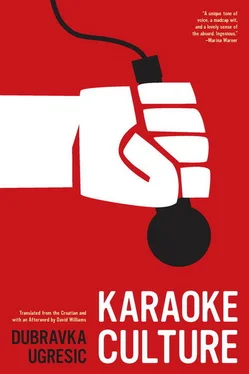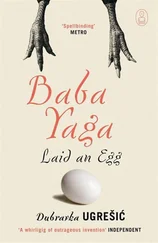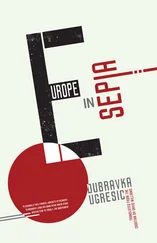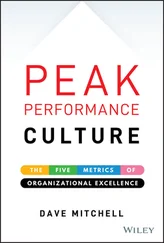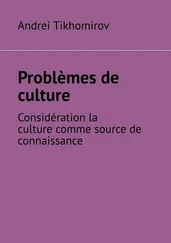Dubravka Ugresic - Karaoke Culture
Здесь есть возможность читать онлайн «Dubravka Ugresic - Karaoke Culture» весь текст электронной книги совершенно бесплатно (целиком полную версию без сокращений). В некоторых случаях можно слушать аудио, скачать через торрент в формате fb2 и присутствует краткое содержание. Год выпуска: 2011, Издательство: Open Letter, Жанр: Публицистика, на английском языке. Описание произведения, (предисловие) а так же отзывы посетителей доступны на портале библиотеки ЛибКат.
- Название:Karaoke Culture
- Автор:
- Издательство:Open Letter
- Жанр:
- Год:2011
- ISBN:нет данных
- Рейтинг книги:4 / 5. Голосов: 1
-
Избранное:Добавить в избранное
- Отзывы:
-
Ваша оценка:
- 80
- 1
- 2
- 3
- 4
- 5
Karaoke Culture: краткое содержание, описание и аннотация
Предлагаем к чтению аннотацию, описание, краткое содержание или предисловие (зависит от того, что написал сам автор книги «Karaoke Culture»). Если вы не нашли необходимую информацию о книге — напишите в комментариях, мы постараемся отыскать её.
Karaoke Culture — читать онлайн бесплатно полную книгу (весь текст) целиком
Ниже представлен текст книги, разбитый по страницам. Система сохранения места последней прочитанной страницы, позволяет с удобством читать онлайн бесплатно книгу «Karaoke Culture», без необходимости каждый раз заново искать на чём Вы остановились. Поставьте закладку, и сможете в любой момент перейти на страницу, на которой закончили чтение.
Интервал:
Закладка:
In the meantime, our work will see us turn up in some new place, in a cheap hotel room, with a completely unjustified sense of control over our lives. With indignation we’ll discover that the cheap room doesn’t have an Internet connection, or a television. We’ll try and fall asleep reading a book, but we won’t quite manage. .
You cannot get to sleep because you lie so narrowly, in an attempt to avoid contact with anything that isn’t shielded by sheets and pillowcase. The first sign then, in an excessive attention to the bed, an irresistible anxiety about the hundreds who have slept there before you, leaving their dust and debris in the fibres of the blankets, greasing the surface of the heavy, slippery counterpane. The dust of others, and of other times, fills the room, settles on the carpet, marks out the sticky passage from the bed to bathroom.
[9]
And as the pale morning light comes through the window we’ll helplessly watch the dust falling upon us like a fine snow.
June 2010
[1]Danilo Kiš, The Encyclopedia of the Dead , trans. by Michael Henry Heim (Evanston, IL: Northwestern University Press, 1997), 39.
[2]Ibid., 43.
[3]Ibid., 39.
[4]Ibid., 40.
[5]Ibid., 41.
[6]Ibid., 43.
[7]Ibid., 42.
[8]Ibid., 56–57.
[9]Carolyn Steedman, Dust (Manchester: Manchester University Press, 2001), 17.
AFTER WORD
A POSTCARD FROM BERLIN BY DAVID WILLIAMS
1.
The shopping bag, the shuffle, the Old Testament beard, and the pants pulled up around his belly button mark Detlef as gently eccentric, and the couple of thousand people gathered in Berlin’s Mauerpark on a sunny Sunday afternoon love him for it. Twenty years ago the Mauerpark was a no man’s land between East and West Berlin, and Detlef, singing his almost famous German version of Sinatra’s “My Way,” would have been shot. The impresario of this celebration of the awkward and the awful (and ironic?) is an Irish bicycle courier who goes under the pseudonym Joe Hatchiban — from the Japanese Juhachiban , (“number eighteen” or “lucky karaoke song”). YouTube confirms that like Detlef, Hatchiban is now a local and budding global personality. In his many media interviews he concedes the strangeness of hosting karaoke afternoons on a former death strip, but like the journalists who interview him, he struggles to articulate what it all means. Der Spiegel suggested that it was “just a good old-fashioned good time.”
2.
In “Karaoke Culture,” the essay that opens and defines this collection, Dubravka Ugrešić writes that as a cultural critic (a “dubious guild”) she is, in karaoke, ready “to see more than just desperate squawking to the backing track of ‘I Will Survive’.” As she maintains, “karaoke supports less the democratic idea that everyone can have a shot if they want one, and more the democratic practice that everyone wants a shot if there’s one on offer.” Mauerpark karaoke celebrates feeling über alles : the worse the performance, the more enthusiastic the crowd. One struggles to imagine the skinny Canadian tourist squealing Prince’s “Kiss” and doing one-armed push-ups in the loneliness of his bedroom, but give him the Mauerpark crowd and he’s ready to go. Anonymous and amateur, the Canadian tourist doesn’t “display any artistic pretensions, or any particular concern about authorship.” His creation is neither plagiarism nor imitation, “because both terms belong to a different time and a different cultural system.”
3.
Whether we are polite children of the southern German provinces or bourgeois-bohemian migrants from across oceans, Berlin is not so much a projection screen for fantasies of a life more exciting (and certainly more affordable), but a screen on which to play out these fantasies. A little rebellion here, a little self-invention there — karaoke on the death strip is just the start. In the spirit of the mayor of Berlin’s declaration that the city is “poor but sexy,” we think of ourselves the same way. We don’t wonder whether the one-in-five Berliners who are structurally unemployed would perhaps be happier being a little less sexy, if only they were a little less poor. At this moment Berlin is the ultimate karaoke-city, a place to be “somewhere else, someone else, someone else somewhere else.” As Ugrešić writes, “karaoke culture in all its manifestations unites narcissism, exhibitionism, and the neurotic need for the individual to inscribe him or herself on the indifferent surface of the world, irrespective of whether the discontent individual uses the bark of a tree, his or her body, the Internet, photography, an act of vandalism, murder, or art. In the roots of this culture, however, lies a more serious motive: fear of death. From the surface of karaoke culture shimmers the mask of death.”
4.
Ugrešić’s 1997 novel The Museum of Unconditional Surrender was elegiacally named for a museum that no longer existed. The museum, housed in the building in Berlin in which Nazi Germany signed its capitulation to the Soviet authorities, had closed three years earlier. It re-opened in 1995 with the somewhat more benign name, the German-Russian Museum Berlin-Karlshorst . The barracks surrounding the museum so poignantly described by Ugrešić’s narrator have now largely been torn down, and the Soviet officers’ quarters next door to the museum are currently being converted into luxury apartments. As Ugrešić writes in this collection, “freedom from knowledge, from the past, from continuity, from cultural memory and cultural hierarchy, and an inconceivable speed — these are the determinants of karaoke culture.”
5.
Christoph Koch, a German journalist, has just published a book about his trauma of going forty days and forty nights without the Internet or a mobile phone. Other journalists have been interviewing him about his messianic survival in the wilderness. In recent years hotels, cafés, airports, and all kinds of other places have advertised Internet access as a selling point, but we can’t be far from a time when black zones beyond Google’s reach will be priced at a premium.
6.
Ugrešić the essayist has always been a switch hitter. Within collections, and even within individual essays, she writes alternately as elegist, diatribalist, satirist, ironist, and on occasion, moralist. Her first essay collection was published in 1993, and in the original Croatian was called Američki fikcionar ( American Fictionary ), but the book appeared in English as Have a Nice Day: From the Balkan War to the American Dream . In response to Ugrešić’s notes on couch potatoes, organizers, shrinks, and jogging, a reviewer for The New York Times wrote “judging by this book, Ms. Ugrešić saw little of the United States, made few friendships of any depth and watched television a lot.” Much got lost in translation with that change of title.
7.
Almost three hundred years ago Jonathan Swift modestly proposed that the starving Irish sell their children as food for the rich. At the time, and in the intervening years, some readers have taken Swift literally, but no one has ever taken these people seriously. In “Assault on the Minibar,” either Ugrešić or her narrator (which?), fed up with the totalitarian assumption of guilt that she is going to steal from the minibar and not pay for it, confesses to scratching “Death to the Minibar!” into the little locked fridge, throwing it in the bath, and turning on the faucet. Thinking about the victimized little minibar in Room 513, the aforementioned New York Times reviewer will no doubt be first to call the police.
Читать дальшеИнтервал:
Закладка:
Похожие книги на «Karaoke Culture»
Представляем Вашему вниманию похожие книги на «Karaoke Culture» списком для выбора. Мы отобрали схожую по названию и смыслу литературу в надежде предоставить читателям больше вариантов отыскать новые, интересные, ещё непрочитанные произведения.
Обсуждение, отзывы о книге «Karaoke Culture» и просто собственные мнения читателей. Оставьте ваши комментарии, напишите, что Вы думаете о произведении, его смысле или главных героях. Укажите что конкретно понравилось, а что нет, и почему Вы так считаете.
